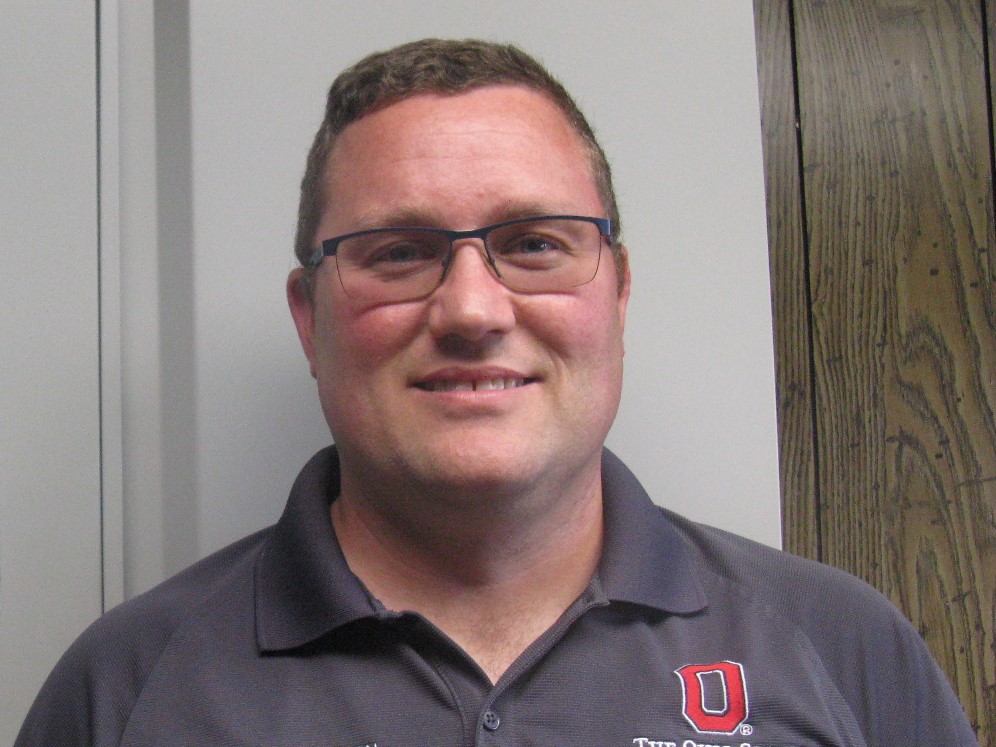In Their Own Words: Travis West, Adult Ally for Youth-Led Prevention
At the Foundation for Appalachian Ohio, we know that today’s youth are not only our future leaders; they can be powerful leaders in their communities today. That’s why FAO’s Health & Human Services Pillar of Prosperity is supporting initiatives in ten Appalachian Ohio counties that place youth in the driver’s seat to prevent substance misuse. To get a better sense of what this work means to the people engaged in it, we sat down with Travis West of OSU Extension, who is serving as an adult ally of a youth-led prevention initiative at Vinton County High School.

Tell me a bit about your youth-led prevention work. What have you been able to accomplish so far, and what do you hope to accomplish moving forward?
We are beginning to bring a group of youth together, many of whom have been involved in work around kindness and inclusivity at the high school. Our goal is to work with that group to identify what they see in the county related to substance misuse, and how that’s affecting families as well as youth. Then we want to dive into some of the data and come out of that with a central focus for the group to work on over the next year.
The initial conversations have focused on what sorts of educational efforts or involvement we can get from the rest of the student body. But we’re also considering what we can do with adults and families as well.
Down the road, I hope the group is able to provide input to other groups working on prevention in the community. As a county, I don’t know if we’ve embraced that type of youth input. Often we get stuck in a mentality that says,“we’re adults so we know more than teenagers.” My goal is that we get out of that mentality and really begin to see the input of youth as a valuable contribution to these issues.
Why do you think it’s important that prevention initiatives for youth be led by youth?
Youth typically respond better to peers when they’re thinking through the things that concern how they live their lives. Teenagers are often not very receptive to messages about those issues from their parents, whereas if they hear those messages from peers, they can become infectious. There’s an attitude that says, “if my peers are concerned about something, I should be too, because we are in a similar place in life.” In the context of Youth-Led Prevention, I think that speaks to the importance of having a core group of students that can feed off each other, bounce ideas back and forth, and develop a mutual interest.
How do you think Youth-Led Prevention can empower youth as leaders?
Several of the student leaders in Youth-Led Prevention already have experience leading in other organizations, such as school groups and external programs. Some of them are camp counselors, for instance. I hope that the next year’s effort will build on that by empowering them to be confident and understand the drug epidemic in Vinton County, and to view themselves as capable of leading and providing input around this issue.
But this is also bigger than the drug epidemic, in terms of empowering youth to give back to the community. When you look at volunteer organizations and committees working on various issues, you tend to see an aging population volunteering with those groups, and not just in Vinton County. So I’m hoping this initiative will develop the skillset, ability, and desire of youth to contribute, regardless of what community they’re in.
What role does OSU Extension play in supporting youth-led prevention in Vinton County, and how has the grant from FAO supported OSU Extension’s work?
At OSU Extension, we’ve talked for several years about the need to have youth involved as decision makers in prevention efforts. The funds from FAO have helped us dedicate some time to this, and the trainings supported by the grant have been very beneficial in thinking about how we, as adult allies, can best support youth leaders.
I’m one of the adult allies, along with Sarah Prater from the Vinton County Health Department. Both of us assumed, coming in, that we would be responsible for getting the data, analyzing it, and giving the youth options, but the trainings through the grant have really taught us how to start with youth at the beginning of the process. So, rather than analyzing the data ourselves, for instance, our role is really about helping youth analyze the data to guide their decision-making and planning.
What do you think is the importance of the adult ally role?
Our approach is to come in believing that youth have valuable input to give, and to provide support to ensure that the youth leaders are as equipped for the job ahead. I believe sometimes teens think, “yeah, I could lead this effort,” but they worry about not having all the answers when others might question their efforts. Knowing they have support to get the information they need, answer questions, and get through the planning process can really help. Part of the value of having adult allies is also realizing that adults don’t know all the answers either. That realization increases the amount of confidence and comfort youth feel serving in the core group and advocating for their input.






